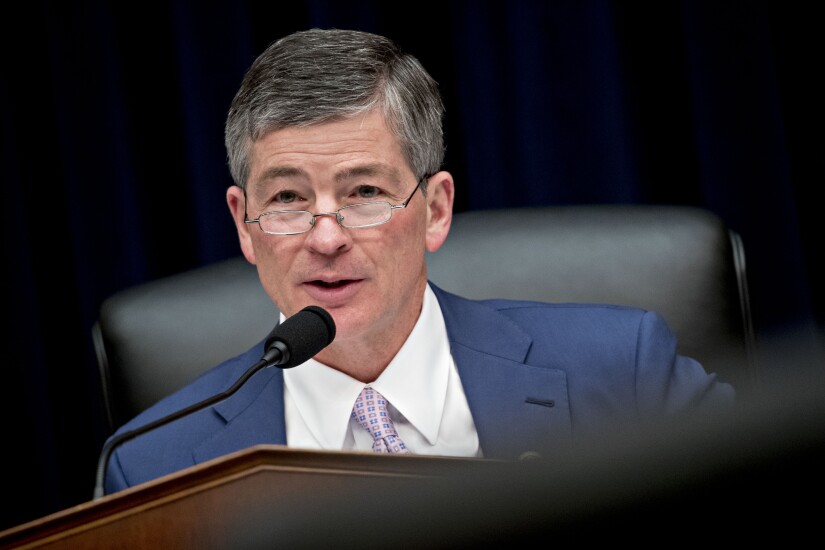WASHINGTON — Federal Reserve Chair Jerome Powell largely hewed close to his predecessor Janet Yellen's positions in his first testimony Tuesday before Congress since being sworn in early this month, but also signaled important changes when it came to paying banks interest on reserves and other topics.
In more than three hours of Humphrey-Hawkins testimony before the House Financial Services Committee, Powell faced several questions that Yellen did, and in many cases furnished identical answers: the debt ceiling, he said, cannot be breached; the threshold for "systemically important" banks should be raised; the Federal Reserve’s current makeup and monetary policy process has served the nation well; certain problems, such as fiscal policy, are outside the purview of the Fed.
But Powell veered off in other areas. Following are key takeaways from his testimony.
Fed paying interest on reserves not set in stone
One of the most important changes concerns the Fed's policy, adopted during the financial crisis, of paying banks interest for their excess reserves, which has become arguably the most important way the central bank sets interest rates overall.
House Financial Services Committee Chair Jeb Hensarling, R-Texas, wasted little time in asking Powell whether that policy — which was established in large part because open market operations were rendered ineffective during the housing crisis — ought to be phased out as the Fed’s balance sheet is returned to a more traditional level, with interest on excess reserves remaining “the fire extinguisher behind the glass that you break out in times of emergency.”
Powell said the Fed is examining that question.
“We have not made a decision in the longer run whether that will continue to be our framework, or whether we will return to something more like what we did before the crisis,” Powell said. “I don’t expect to be returning to that decision in the near term. I will just say that our current approach seems to be working very well; it gives us control over rates in a way that markets seem to understand.”
Powell’s comments are in










